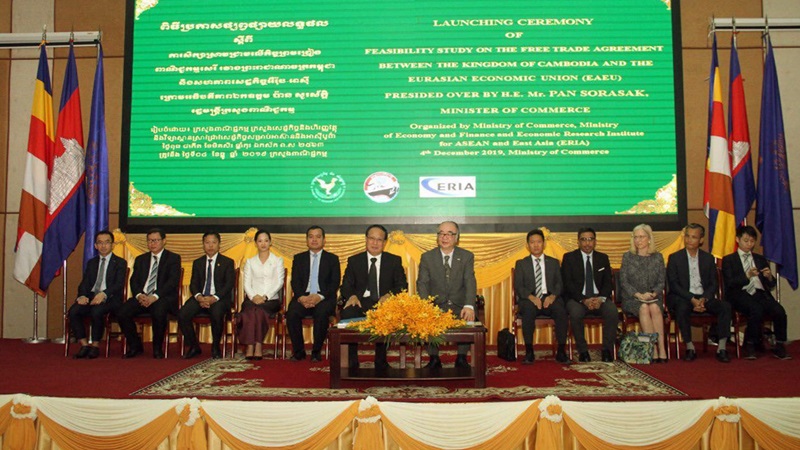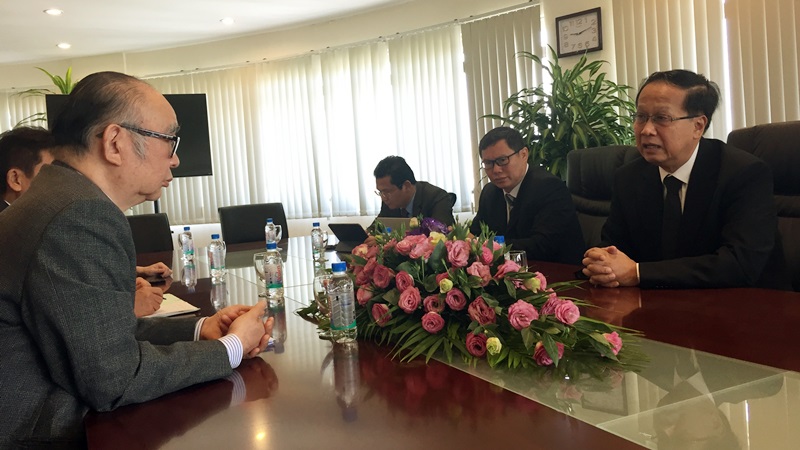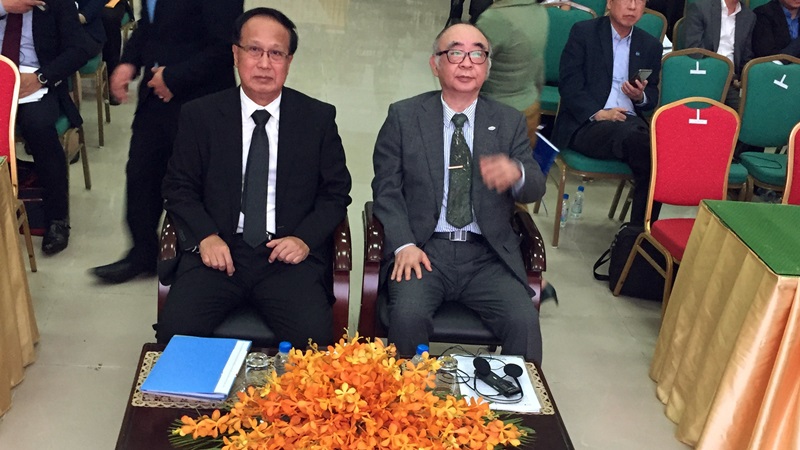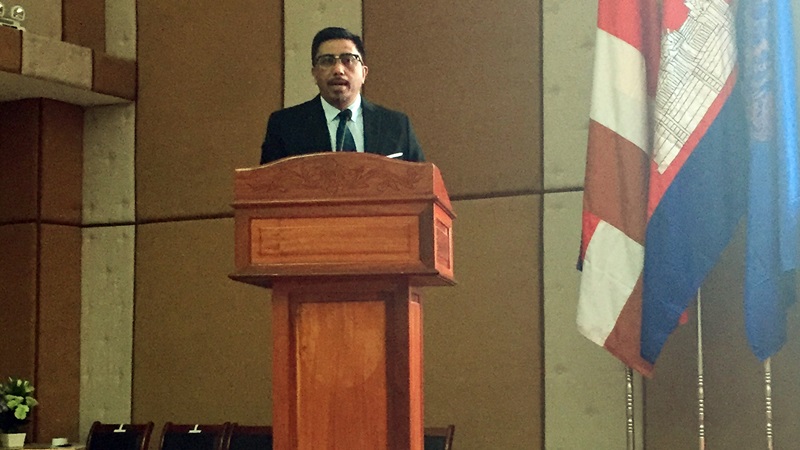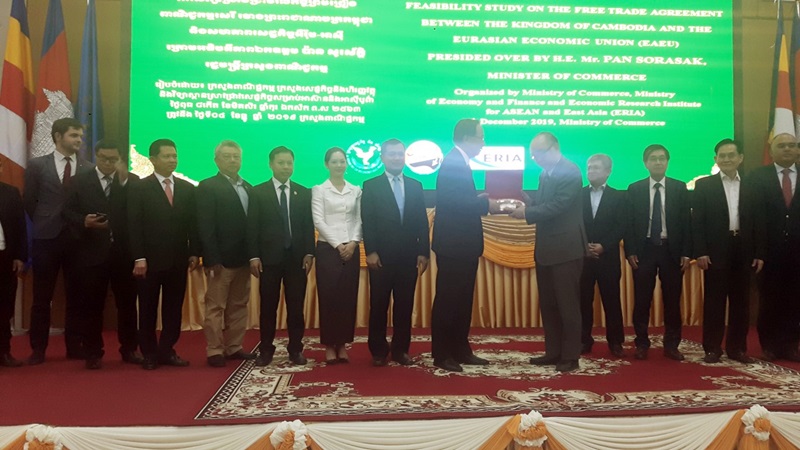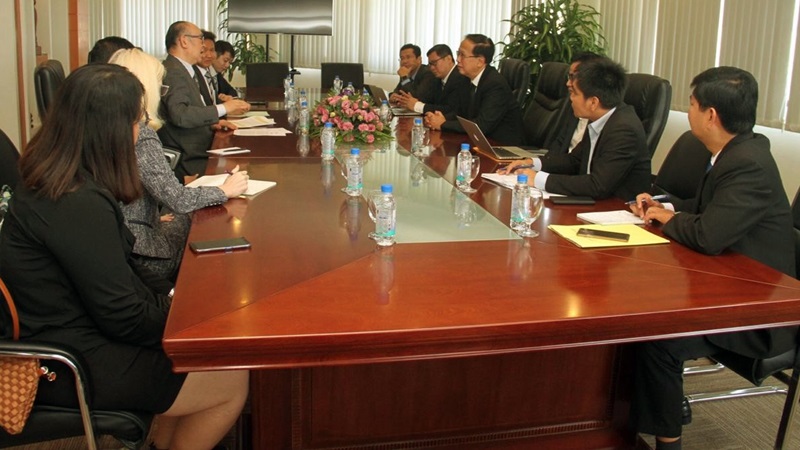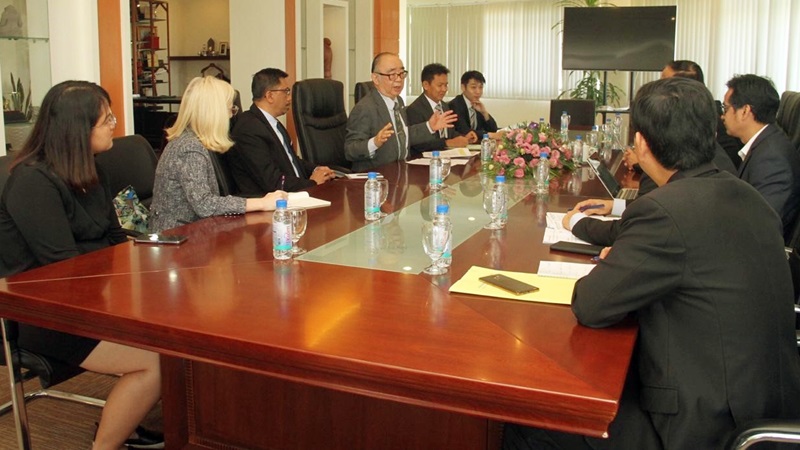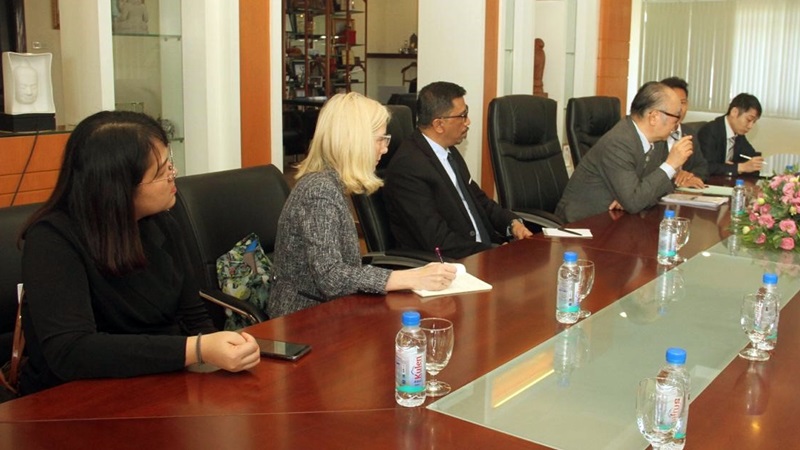Study Finds Many Potential Benefits from Cambodia and Eurasian Economic Union FTA
Share Article:
Print Article:
Phnom Penh, 4 Dec 2019: The Economic Research Institute for ASEAN and East Asia (ERIA) and the Ministry of Commerce of the Royal Government of Cambodia co- launched the report on the ‘Feasibility Study on the FTA Between Kingdom of Cambodia and Eurasian Economic Union’ at the Ministry of Commerce, Phnom Penh, Cambodia. The event was attended by over 80 participants from government ministries, NGOs, international organisations, and research institutes.
The report highlights several potential benefits of the FTA for both Cambodia and the Eurasian Economic Union (EAEU). For Cambodia, the EAEU offers a large market to expand trade and investment and to diversify the economy to more value-added activities within the Global Value Chain. In particular, there are gains in the manufacturing sector, expansion into services, and development of new services. The study also highlights the entry of agriculture production and services into the Global Production Value Chain. The expansion of financial services, logistics, digital economy, and agricultural services were highlighted as key sectors of growth with the FTA between Cambodia and EAEU. In order for Cambodia to fully benefit from the FTA, the study highlighted the importance of opening its domestic market and the development of a more diversified industrial and market structure.
In his welcoming remarks, Prof Hidetoshi Nishimura, President of ERIA, elaborated on the potential benefits to Cambodia.
‘In short, Cambodia can further boost the export of textiles and garments, agricultural products, while Eurasian exporters would potentially gain greater access to growing markets in both Cambodia and ASEAN at large. However, be aware that more work needs to be done. Competition in sectors, as well as complementarities in other sectors with Viet Nam is expected, and therefore Cambodia needs to deepen trade reform. Also, Cambodia should upgrade and improve quality of Cambodian agricultural products especially the development of agricultural services in standards and branding, marketing, logistics and warehousing services. There is also potential to develop new markets in green products and green exports,’ said Prof Nishimura.
Prof Nishimura also highlighted the strong history of cooperation between Cambodia and ERIA, in particular, during the last Cambodian chairmanship in 2012 and several ongoing energy-related projects with Ministry of Energy and Mines.
After the welcoming remarks, Minister of Commerce of Cambodia H.E. Pan Sorasak delivered his opening remarks. Minister Sorasak expressed his appreciation of all the hard work by the researchers as well as the staff of the Ministry of Commerce and Ministry of Economy and Finance to finalise this report. Minister Sorasak mentioned that institutional capacity building is invaluable for application of the findings of this report for national interest. He also stated that this report will be a good reference for the coming bilateral FTAs with partner countries.
Dr Shandre Mugan Thangavelu, Director of the Centre for International Economic Studies, University of Adelaide, presented an overview of the key technical contents and research results of this FTA study.
In closing the event, the report was officially handed over from Prof Nishimura to Minister Sorasak.
Before starting the launching ceremony, ERIA and the Ministry of Commerce held a bilateral meeting to discuss the cooperation towards the next Cambodia chairmanship of ASEAN in 2022. Minister Sorasak expressed his deep appreciation of ERIA’s continued support.
